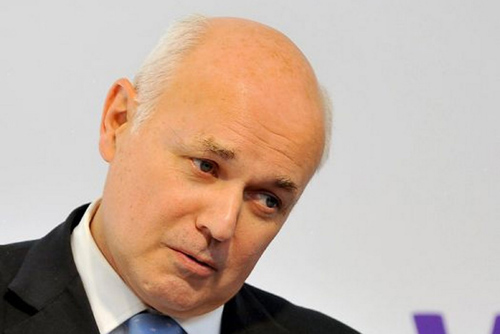
Since announcing my plans for the Rationalists’ Parliament debating society a few weeks ago, I’ve been meeting all sorts of fascinating people who care about numbers.
People like Peter. When we met I could barely take my eyes off Peter’s eyebrows, which seemed to be independent of his face and when raised in incredulity at the misuse of statistics are truly a sight to behold. Thankfully Pete’s words were just as captivating, which you might not expect from a retired statistician. Even though he’d just met me, he took no time at all in getting down and dirty: it is a great crime, he said, when public figures misuse statistics. Pete’s right, of course. But I suspect that most of us do it in the heat of an argument: “I read somewhere that one in three people said they would rather eat a budgie than stay in the EU. Or maybe it was one in four. I can’t really remember, but the point is...”
Pete’s point was that although MPs who fiddle their expenses are hauled in front of the parliamentary public accounts committee to explain themselves, those who stick statistics into the mangle of political truth go unquestioned.
Take work and pensions secretary Ian Duncan Smith, who so far, seems to have successfully dodged the bullet fired by the chairman of the independent UK Statistics Authority, who wrote an open letter last month claiming that IDS had fiddled a set of stats published by his own department.
Thank heavens for UK Stats Authority, and people like Pete.
But how many statisticians (with or without serious eyebrow endowments) do you know? Not many? Me neither. Of course, as far as IDS goes, we ought to expect the media to hold politicians accountable, and sometimes they do. When Nick Clegg announced plans to save money on childcare costs by allowing nurseries to take more kids per carer, newspapers quoted academic Eva Lloyd who said there’s no evidence that it’d work. Clegg later admitted this and ditched the policy.
But we’re not all under the media’s gaze – the rest of us need friends with the confidence to call us out when we’re using bum numbers to make a point. I know this is tricky. Sometimes you just need the right people in the room. Or an internet-enabled device. These are some of the things we can do in the Rationalists’ Parliament. We’ll choose a topic to debate and then ensure campaigners, publicly-funded researchers and anyone interested come along. If anyone quotes stats, unlike IDS, they’ll probably be forced by our parliament to back them up – or retract them.
Since launching the website and the house rules, lots of people have contacted me with ideas, suggestions and criticisms. It seems that a fair few people are interested in using Pete’s attention to the detail to have political debates– about childcare methods, shale gas, GM food or other things. But those of us who want a Rationalists’ Parliament also want it to be a place where respecting values is as important as respecting numbers. Our "rationalism" insists that we’ll all listen to values and ethics as well as evidence. To give too much weight to any one of these would be irrational, right?
September 10 is the first sitting of the Rationalists’ Parliament, in the evening, at Conway Hall in Holborn, Central London. I’m still deciding on the right topic to start with and developing the format. The latest ideas include asking debaters to scribble questions or their own initial policy positions on a whiteboard before the debate, moments of silence to consider certain views and minimise knee-jerk rhetoric, and snap votes. Any other ideas, please contact me. In the meantime, tell your friends, especially if they feel protective over numbers and/or they’ve got immense eyebrows.

